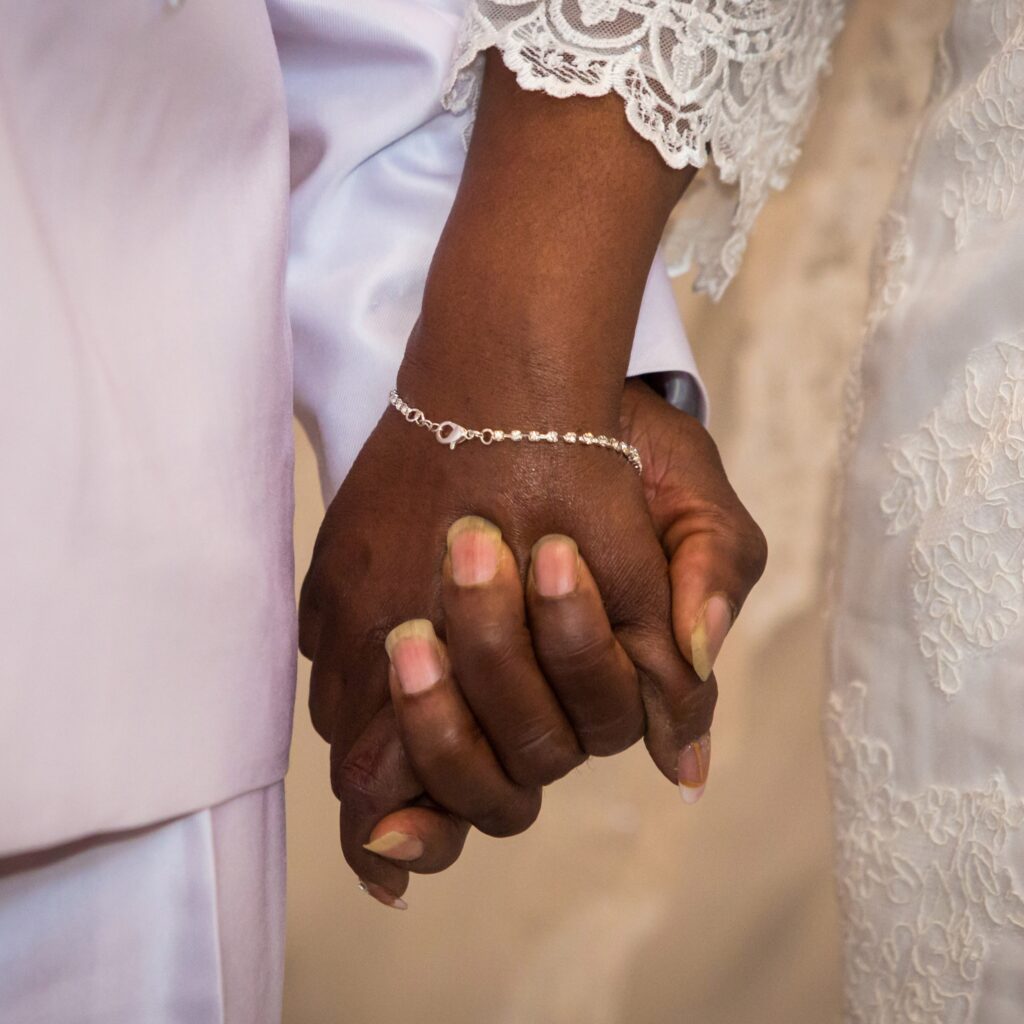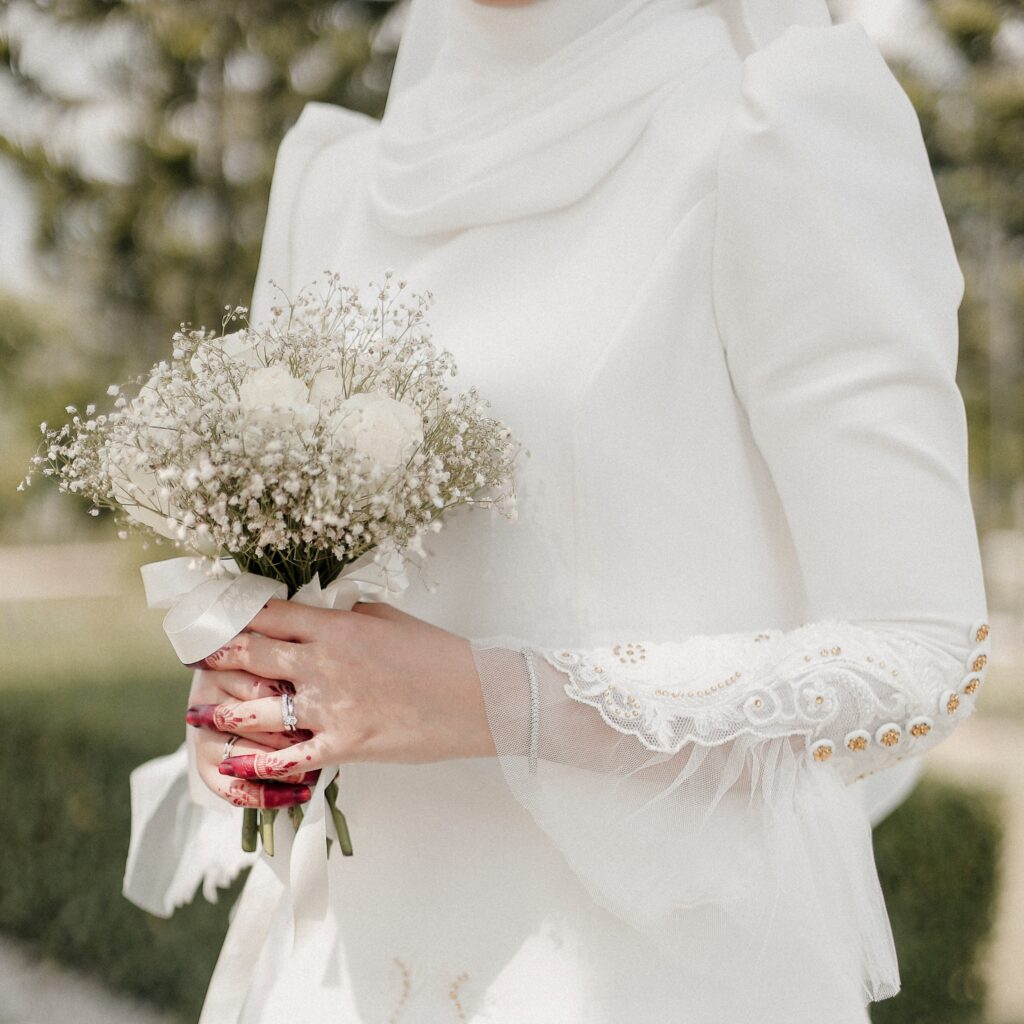Have you ever wondered what nikah in Islam truly means? Nikah is much more than a mere ceremony; it’s a deeply sacred union that forms the cornerstone of Muslim family life.
Through this post, you’ll gain a deeper understanding of what nikah entails, why it’s so significant, and how it beautifully encapsulates the principles of love, respect, and commitment. By the end, you’ll see the profound beauty and excitement that make this bond so special. Dive in to explore the essence of nikah in Islam and discover how it shapes the lives of countless couples.
Definition of Nikah in Islam
When considering the question “what is nikah in Islam?”, it’s critical to recognize that it’s not just a ceremonial event—it’s a foundational principle in Muslim life. Nikah, or marriage, is a revered institution that binds a couple together both legally and spiritually. Below, we’ll discuss its linguistic and legal definitions and its importance in Islamic tradition.
Linguistic Meaning of Nikah
In Arabic, the word “nikah” literally translates to “union” or “to unite.” This simple yet profound term captures the essence of two individuals coming together to share their lives. It’s an act of bringing hearts and souls under one roof, fostering companionship and mutual support. It’s akin to two rivers merging into a single, stronger current, flowing together through the journey of life.
Legal Definition of Nikah
The legal definition of nikah in Islam is comprehensive and intricate. Legally, nikah refers to a binding contract between a man and a woman, agreed upon by both parties, which establishes their rights and duties towards each other. Here’s what typically constitutes a valid nikah:
- Consent: Both the bride and groom must willingly consent to the marriage.
- Witnesses: At least two male witnesses or one male and two female witnesses are required.
- Mahr: A mandatory gift from the groom to the bride, symbolizing his commitment and responsibility.
This legally binding contract ensures that both individuals are protected, and their rights are respected, aligning with Islamic laws.
Importance in Islamic Tradition
Nikah holds immense significance in Islamic tradition for several reasons:
- Spiritual Bond: Nikah is seen as a unification that pleases Allah, enhancing the spiritual journey of both partners. It’s more than just a societal or legal requirement; it’s a spiritual covenant made with divine blessings.
- Social Stability: By forming a family unit, nikah provides the foundation for a stable and loving home, which is the building block of a harmonious society. It’s comparable to planting a seed that will grow into a nurturing tree, providing shade and shelter.
- Moral Conduct: The framework of nikah encourages a life of moral integrity and responsible behavior. It’s like having a roadmap that guides you through life’s various terrains with ethical and moral signposts.
Why Nikah is So Important
Wondering why nikah is so revered? Here are a few reasons:
- Completes Half of Faith: Prophet Muhammad (PBUH) said, “When a man marries, he has fulfilled half of his religion.” This statement underscores the religious significance of nikah.
- Emotional and Physical Companionship: Nikah offers a legitimate way to fulfill emotional and physical needs, creating a balanced and fulfilling life.
- Community Welfare: Marriage helps in raising righteous children, contributing to a morally upright community.
Understanding “what is nikah in Islam” goes beyond the literal ceremony. It’s about embracing a lifelong partnership based on love, mutual respect, and shared responsibilities. In essence, nikah beautifully embodies Islamic teachings and values, making it a cornerstone of Muslim life.

The Significance of Nikah in Islamic Culture
Nikah, or marriage, isn’t just a joyous occasion; it’s a vital part of Muslim life that goes beyond the festive celebrations. It holds a deep spiritual significance and plays a crucial role in maintaining social harmony. Let’s explore how nikah contributes to both the spiritual and social aspects of the Muslim community.
Spiritual and Social Importance
Nikah serves as a bridge that connects you to both your faith and your community.
- Spiritual Growth: At its core, nikah is a spiritual union that pleases Allah. Think of it as planting a garden of love and faith, where you and your spouse nurture each other with kindness, patience, and mutual respect. This unity not only brings you closer to each other but also draws you closer to Allah. By fulfilling half of your faith through nikah, as Prophet Muhammad (PBUH) said, you embark on a journey that enhances your spiritual life.
- Social Stability: Nikah is the bedrock of a stable and loving family. It provides a secure environment where children are raised with strong moral values and ethical teachings. Like building the foundation of a house, nikah supports the entire structure of society. When families are strong and united, communities flourish. It’s a key ingredient in the recipe for social harmony and unity.
Nikah as a Sunnah
Nikah isn’t just encouraged in Islam; it’s a practice established by the Prophet Muhammad (PBUH).
- A Practice of the Prophet: Following the Sunnah, or practices of Prophet Muhammad (PBUH), is a way to gain Allah’s favor. The Prophet emphasized the importance of marriage and described it as a means to complete one’s faith. By engaging in nikah, you are not only following his path but also embracing an essential element of Islamic life.
- Encouragement in Islam: Islam encourages marriage to ensure moral conduct and social integrity. It provides a lawful channel for emotional and physical companionship, catering to the natural human need for partnership. This makes nikah not just a social contract but a sacred bond that fulfills a core aspect of Islam. The Prophet (PBUH) even said, “Marry those who are loving and fertile, for I will boast of your great numbers before the other nations on the Day of Judgment.” This highlights the importance of marriage in strengthening the Muslim community.
Nikah, therefore, is much more than a ceremony. It’s a spiritual covenant and a social contract that bind individuals, families, and communities together under the divine guidance of Islam. By understanding the significance of nikah in Islamic culture, you can appreciate its profound importance in shaping the lives of countless Muslim couples.
Conditions and Requirements of Nikah
Understanding the conditions and requirements of nikah is essential for appreciating this sacred union. Nikah in Islam isn’t just a simple agreement; it involves specific criteria that ensure its validity and significance. Let’s break down these fundamental aspects:
Consent of Both Parties
For a nikah to be valid, mutual consent from both the bride and groom is absolutely crucial. Imagine two people embarking on a journey together; if one isn’t willing, the trip wouldn’t be enjoyable or successful, right? This mutual agreement highlights the importance of both individuals willingly entering this spiritual and social contract.
- Willingness and Happiness: Both parties need to express their consent without any compulsion or pressure. This mutual happiness forms the foundation of a loving and peaceful marriage.
- Clear Agreement: They should clearly understand and agree to the terms of the nikah. A clear yes from both sides transforms this union into a solid partnership.
Mahr (Dowry)
The concept of mahr is an integral part of nikah. It’s a mandatory gift from the groom to the bride. Think of it as a symbol of love and commitment, demonstrating the groom’s willingness to take on his responsibilities.
- Symbol of Respect and Responsibility: The mahr signifies the groom’s respect towards the bride and his readiness to support her.
- Determining Mahr: The amount and nature of mahr should be decided through mutual agreement. It can vary greatly, but the key is that it should be something valuable to the bride.
Witnesses
Witnesses play an essential role in the nikah ceremony. Their presence ensures transparency and public acknowledgment of the marriage. It’s like having friends and family witness a significant milestone in your life, making it more official and celebrated.
- Presence of Witnesses: At least two male witnesses or one male and two female witnesses are required. Their role is to validate the marriage contract, ensuring that it’s conducted properly.
- Role They Play: Witnesses stand as a testament to the couple’s commitment and the legality of their union. They serve to protect both parties’ rights and confirm the event’s authenticity.
Legal Guardianship
The role of the wali (legal guardian) is another critical element in the nikah process. The wali, usually the father or a male relative of the bride if the father is deceased or not available, ensures that the bride’s interests are protected. It’s like having a trusted advisor guiding you through an important life decision.
- Protection and Guidance: The wali consults with the bride and ensures that her consent is obtained, safeguarding her rights and welfare.
- Approval of the Marriage: The wali’s approval is necessary for the nikah to be valid. This role emphasizes family involvement and support in the marriage process.
Understanding these conditions and requirements—consent, mahr, witnesses, and legal guardianship—helps you appreciate the depth and seriousness of nikah in Islam. Each element plays a vital role in ensuring that the marriage is conducted with respect, legality, and mutual understanding.

The Nikah Ceremony
When you think of a wedding, you might picture grand celebrations, but in Islam, it’s the simplicity and spirituality of the nikah ceremony that truly stand out. This sacred event is more than just exchanging vows; it’s a spiritual union that binds two souls.
The Proposal (Ijab) and Acceptance (Qubool)
The nikah ceremony begins with the proposal, known as Ijab, and the acceptance, called Qubool. The process is straightforward yet deeply profound.
- Proposal (Ijab): The groom or his representative puts forth the marriage proposal to the bride. This isn’t just a casual ask; it’s a significant step that symbolizes the groom’s intention to enter into a lifelong partnership. It’s like knocking on the door of someone’s heart, hoping they’ll open up and share their life with you.
- Acceptance (Qubool): The bride responds with her acceptance, signifying her willingness to embark on this new journey. Her acceptance must be clear and unmistakable, often repeated three times to remove any doubt. It’s like saying “I do” in a way that resonates deeply, echoing the commitment you’re about to make.
This moment of proposal and acceptance is a powerful declaration, as it unites two hearts and souls under the witness of Allah and the community.
Recitation of the Khutbah
Once the proposal and acceptance are completed, the ceremony moves to the recitation of the Khutbah, a vital part that carries great spiritual significance.
- Significance of the Khutbah: The Khutbah is a sermon delivered by the Imam or a knowledgeable person. It’s more than just words; it’s a spiritual reminder of the principles and responsibilities that come with marriage. Imagine it as a guidebook for the journey you’re about to start, filled with wisdom and divine blessings.
- Content of the Khutbah: The sermon usually includes verses from the Quran and Hadith, emphasizing the sanctity of marriage, mutual respect, and the duties of both partners. It’s like hearing a song that perfectly captures the melody of love, commitment, and faith, setting the tone for your married life.
- Purpose: The Khutbah serves to remind you and your spouse of the spiritual and moral dimensions of your union. It’s a moment to reflect on the divine blessings and the responsibilities you’re taking on.
By understanding these elements of the nikah ceremony—the Proposal (Ijab) and Acceptance (Qubool) and the Recitation of the Khutbah—you can appreciate the depth and beauty of this sacred event. It’s not just a formality; it’s a meaningful spiritual journey that marks the beginning of a new chapter in your life.
Post-Nikah Customs and Traditions
Once the nikah ceremony is complete, the celebrations continue with various customs and traditions that bring families together and mark the joyous union. Let’s dive into a couple of these significant post-nikah practices.
Walima (Wedding Feast)
The Walima is a wedding feast that holds great importance in Islamic culture. It’s not just a celebratory meal; it’s a symbol of gratitude and community.
- Significance: The Walima is hosted by the groom and his family to celebrate the new union and to announce it publicly.
- Community Bond: During the Walima, loved ones, friends, and community members gather to offer their blessings and best wishes to the newlyweds. It serves as a platform to strengthen community ties and foster a sense of unity. Think of it as a massive family reunion where laughter and happiness flow freely.
- Expression of Gratitude: The Walima also serves as an expression of gratitude to Allah for the blessings of marriage. By sharing this happiness with others, you thank Allah for bringing two souls together in love and harmony. It’s a beautiful reminder of the communal spirit that is so central to Islamic life.
Integration of Families
Nikah is not just about the union of two individuals but also about bringing two families together. This integration fosters stronger community ties and a sense of extended family.
- Bridging the Gap: The post-nikah period is a time when the families of the bride and groom get to know each other better. This bonding can be compared to stitching two pieces of fabric together to create a stronger, more colorful tapestry.
- Shared Responsibilities: Families often come together to support the newlyweds in their new journey. This collective support system is crucial for providing guidance, advice, and emotional backing. It’s like having an entire team rooting for your success and happiness.
- Creating New Traditions: As two families unite, they often bring their unique customs and traditions, blending them to create new ones. This melting pot of cultures and practices enriches the family experience and adds new dimensions to the family’s heritage.
By understanding these post-nikah customs—the Walima and the integration of families—you can see how they play a vital role in celebrating the union and building a strong community. These traditions carry forward the spirit of nikah, ensuring that the joy and blessings of marriage are shared by all.

Common Misconceptions about Nikah
In the journey to understanding what is nikah in Islam, it’s vital to clear up some common misconceptions. Misunderstandings can create barriers to appreciating the true beauty and significance of nikah. Let’s dive into two major misconceptions and set the record straight.
Nikah and Forced Marriages
One of the most widespread misconceptions about nikah is that it involves forced marriages. This couldn’t be further from the truth. Islam places a high emphasis on the consent and willingness of both parties entering into a marriage.
- Emphasis on Consent: In Islam, both the bride and the groom must willingly consent to the marriage. Consent is not just a formality; it’s a crucial requirement. Imagine starting a journey where both travelers must agree on the destination; similarly, both parties must want to be married.
- No Compulsion: Forced marriages are not only unacceptable but are considered invalid in Islam. Just as a contract signed under pressure isn’t legally binding, a nikah without mutual consent isn’t valid. Understanding this clears up the misconception that Islam condones forced marriages.
Nikah and Temporary Marriages
Another common misconception revolves around temporary marriages, often known as mut’ah, and how they differ from nikah. In Islam, nikah and temporary marriages are distinct concepts with different rules and significance.
- Permanent vs. Temporary: Nikah is intended to be a permanent union, creating a lifelong bond between the couple. On the other hand, mut’ah is a temporary marriage practice that some sects may allow, but it is not accepted and is haram in Islam. Think of nikah as planting a tree that will grow and bear fruit for years, while mut’ah is more like a seasonal plant that withers away.
- Purpose and Legitimacy: The purpose of nikah is to create a stable, loving family unit. It is rooted in mutual respect, love, and long-term commitment. Temporary marriages do not offer the same level of security and stability, which is why they are not equated with nikah in Sunni Islam.
Addressing these misconceptions—forced marriages and temporary marriages—helps you better understand what nikah in Islam truly means. Recognizing that consent is paramount and that nikah is intended to be a lifelong commitment underscores the sanctity and seriousness of this sacred union.
Conclusion
Understanding what nikah in Islam entails brings you face-to-face with the profound beauty and significance of this sacred union. Nikah is more than a legal or social contract; it’s a spiritual journey that binds two souls together. From its definition and legal requirements to its deep-rooted importance in Islamic tradition, every aspect of nikah contributes to building a loving and stable family.
The ceremony, characterized by mutual consent and profound spiritual reflection, and the subsequent celebrations like the Walima, deepen the communal and familial bonds. By addressing common misconceptions, you gain a clearer picture of nikah’s sanctity and the emphasis on mutual respect and lifelong commitment.
Reflect on the values of love, respect, and commitment that nikah embodies, and feel the excitement of this lifelong partnership. Share your thoughts and experiences in the comments below; your insights could inspire and guide others exploring the beautiful journey of nikah in Islam.
If you are interested in teaching Quran online or want to learn Quran online join us today by sending us an email on our contact form!
